- Ensure sustainable and modern energy approaches
- Cultivate next-generation professionals with practical knowledge
- From tuition fees to job finding through an industry-university scholarship program
On February 27, the Department of Battery Engineering at the graduate school had the '2024 Department of Battery Engineering Graduate School Presentation' in Room 911 of the Fusion Technology Center. At the presentation, around 50 students were interested in secondary battery research or the Department of Battery Engineering. There were presentations regarding the department, faculties, curriculum, and enrollment process and the selection process of industry-university scholarship program (industry-university related course) took place as well.
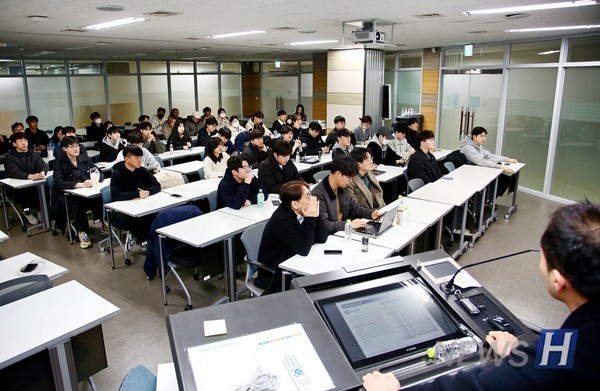
Come to Department of Battery Engineering if you want to lead the secondary battery research
The Department of Battery Engineering was established in 2022 to solve the imbalance issue among human talents for secondary battery field supply that companies require. The Department of Battery Engineering secured the number of its students through the Ministry of Education's approval of increasing its capacity after its establishment.
The energy storage device's demand is increasing since it is a core technology for the era of carbon neutrality and eco-friendly energy and the Fourth Industrial Revolution. Especially, modern society requires more middle- and large-sized energy-storing devices due to various industry fields such as electric cars and informative systems. Following this, the market for the secondary battery is increasing fastly.
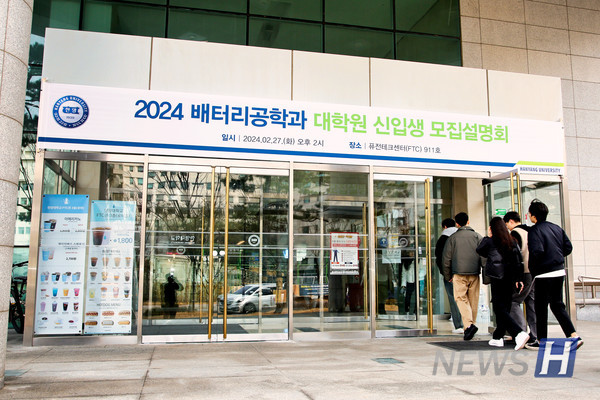
The Department of Battery Engineering has a curriculum that combines four technologies of battery materials and composition, nano, process, analysis and evaluation. Through this, it is going to contribute to an effective storation and management of energy and react to the increasing energy demand of the future society.
At the presentation, Professor Hwang Jang-yeon at the Department of Battery Engineering explained, "The Department of Battery Engineering has the world-best faculties in the four core part materials of secondary batteries - positive electrode, negative electrode, electrolyte, and separator. It has a curriculum that is specialized for middle and large-sized secondary battery technology." Professor Hwang said, "Those who are interested in in-depth research of the secondary battery can come to the Department of Battery Engineering and become an innovative talent."
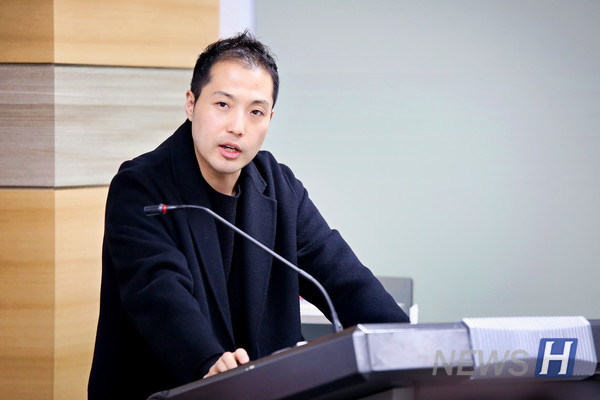
Aim to foster next generation experts equipped with 'practical knowledge'
The educational goal of the Department of Battery Engineering is to cultivate high-quality human resource cultivation that equips the practical knowledge that companies require. Also, through thorough cooperation with companies, plans to create an environment where students can fully focus on research are smoothly ongoing.
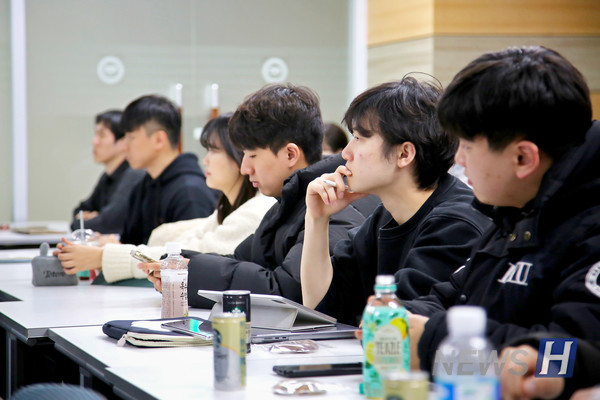
Thanks to the support from the government and industry-university cooperation company, it developed and is running the 'e-Battery Track', an industry-university cooperation project with Posco Future M (Posco Chemical). Also, it signed MOUs with SK On, LG Energy Solution, and LG Chemical to build a good research environment. When students are chosen for scholarships, they will get a full tuition fee supported and additional monthly scholarships for living, and they can relieve their stress for career paths by working in the company after graduation.
Kim Ji-hye, a staff member of the College of Engineering RC Administration Team, who led the presentation, said, "By signing MOUs with companies, we tried to let students actualize their dreams." Kim continued, "The Department of Battery Engineering does not have so many students since it is a newborn department, but its future is bright thanks to a large demand from the industry. When one can get all the benefits from the university by using the industry-university scholarship program well, it will be a large help for one's life."
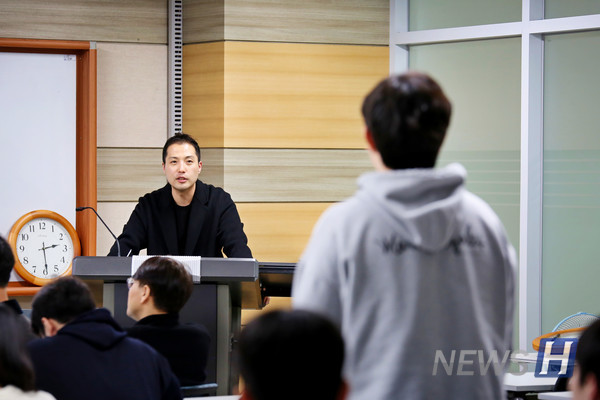
Kim Da-in and Do Kyeong-rok (Senior, Department of Materials Science & Engineering) who participated in the presentation, said, "We newly learned that the graduate school had this department. Monetary issues and career paths after graduation were my concerns and it was good to know a new opportunity at this presentation."
Additional information about the Department of Battery Engineering is available on the homepage (https://battery.hanyang.ac.kr)


 '한양위키' 키워드 보기
'한양위키' 키워드 보기